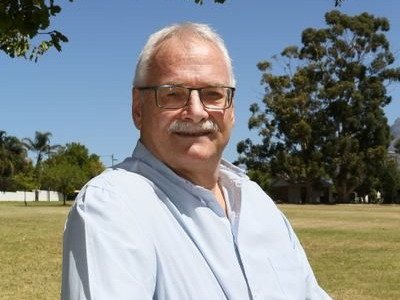
The South African National Defence Force (SANDF) is underfunded and cannot afford to take part in international peacekeeping or peace enforcement missions and should rather use its limited resources to focus on security at home.
This is according to Kobus Marais, Democratic Alliance Shadow Defence and Military Veterans Minister, who was speaking at the inaugural AMD National Security and Safety Townhall event that took place in Johannesburg on 15 May.
“My approach is: what’s in the best interest of the nation,” Marais told event attendees when outlining the DA’s position on defence. In line with the constitution, the SANDF needs to provide security, support foreign policy and trade interests, and only in extreme situations deploy domestically when the integrity of the nation is threatened, he explained.
“A well planned, optimally resourced and effectively financed defence budget driven by a policy of the correct priorities is essential for the sustainable offensive and defensive capabilities of our country,” Marais said.
However, the SANDF is underfunded. “The 2015 Defence Review created the mission driven defence budget spending framework of 40% spent on cost of employees, 30% on training and development, and 30% on maintenance, upgrading and replacement of our equipment. This was never implemented. The budget was neglected and systematically reduced to the current unsustainable .7% of GDP. This should not be less than 1% over the medium term, which is achievable and would give an additional R20 billion,” Marais said.
“While our biggest assets are the majority of our committed and competent personnel, spending on cost of employees was not curtailed nor restructured, which contributed to the current unsustainable 70% spending of the budget [on salaries]. This was exacerbated by the government’s irrational and poorly funded appetite to deploy the military first of all domestically, where mainly the SAPS failed to secure the country, and to outside our borders even if there is no real threat to our national interest.
“With the remaining 30% allocated to training and deployment, very little is left for maintenance, upgrading and replacement of equipment and technology. The decline of our offensive and defensive capability is most notably in the unavailability of prime mission equipment in our Air Force, Navy and Army. At least 85% of our fixed wing and rotary aircraft is not serviceable while our flight crews struggle to meet their currency requirements.
“The R8 billion required to address the [maintenance] backlogs of our buildings and our military bases will not materialise any time soon. Regrettably our Navy’s maritime defence capabilities are reduced to almost that of a water wing…One frigate and the two multi mission patrol boats are the only ones that are available. The upgrading of our remaining frigates, submarines, our Lynx helicopters and augmenting these through the use of modern technology and weapons systems has become indispensable.
“Landward prime equipment is old, unreliable and unsuited to current and future challenges. Without additional funding for essential maintenance and upgrading of equipment, capabilities and technology, we have little defence if there is any aggression,” Marais said.
“Government’s poor decisions based on poor and outdated priorities led to the decline of the military. The situation worsened with the recent irrational deployment of the additional 2 900 soldiers to the SAMIDRC at an additional unfunded R2.4 billion.”
In light of these challenges, Marais said, “we must withdraw our soldiers form our foreign deployments to properly protect our own air, land, and maritime borders, restructure and rebuild our military, and invest in a new defence technology as force multipliers, as well as the maintenance, upgrade, and replacement of our essential strategic prime mission equipment.”
Marais maintains that the only way to effectively increase the defence budget is to grow the economy, but South African can manage with a restructured SANDF that is smaller and better equipped, with technology acting as a force multiplier. The South African defence industry has the skills and world renowned equipment to meet SANDF requirements, which would also contribute to industry job creation.
Marais emphasised that the SANDF is not a welfare or employment agency, and shouldn’t be relied on by other government departments when they are failing, or simply to create jobs.
He also believes efficiency can be achieved by reducing wastage and implementing consequence management to better use the limited resources available to the SANDF.









